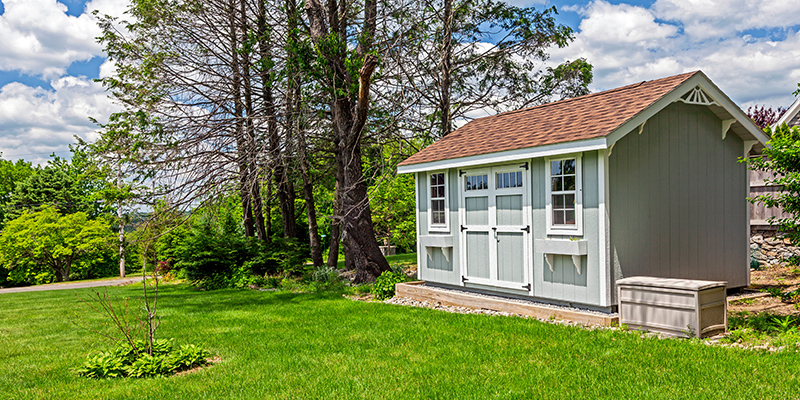Hancock HOA Fights Complaints Regarding Reserve Funds And Late Fees

The Hancock HOA of the John Hancock Center, along with the property management company, reserve fund consultant, and accounting firm, are fighting allegations of fraud and possible criminal activities involving the HOA's financial documents and reserve study. They are also fighting against complaints regarding HOA late fees.
Browse By Category
Sign up for Our Newsletter
The Hancock HOA of the John Hancock Center, along with the property management company, reserve fund consultant, and accounting firm, are fighting allegations of fraud and possible criminal activities involving the HOA’s financial documents and reserve study. They are also fighting against complaints regarding HOA late fees.
The Hiring of Michael Novak
Michael Novak is a CPA with an MBA in Finance. He has fought against the State Parkway Condominium Association in Gold Coast in the late 2010s over several issues. One of them includes his “pet violation” for a service dog that assists with Novak’s deafness. Later, Novak moved to Las Vegas.
He was recently hired by 13 unit owners at the John Hancock Center, a 703-unit condominium at 175 East Delaware Place. They have been concerned about the HOA’s finances.
Once hired, Novak went through over 170,000 pages of the community’s records. He also attended several committee and board meetings in the past 15 years. His criticism focused on the HOA’s reserve studies. After his investigation, Novak says the HOA may be involved in federal and state income tax evasion on top of various types of fraud. These may even date back to 2015.
The HOA’s Reserve Studies
According to Novak, the Hancock HOA’s reserve fund consultants “engaged in deceptive practices.” He says they recommended funding plans that didn’t acknowledge the large increase necessary for crucial property replacements and repairs in 2017 and 2022.
More specifically, he says the 2022 study recommended $2.128 million in reserve funds for 2023 to 2024. However, he says they should have seen a recommendation of at least $4.256 million. Novak states that the HOA’s deferred assessments and liabilities might go as high as $85 million by 2052. The homeowners would then have to pay the shortfall.
Novak says that auditors are highly encouraged to scrutinize reserve studies because of the pressure coming from the Common Interest Realty Association industry. The reports must not lead to large or sudden hikes in assessments.
Hancock HOA President’s Rebuttal
On the other hand, the HOA president, Scott Timmerman, said that the claims against the HOA are misleading, unsubstantiated, and nonsensical without factual support. His letter to Novak said that the HOA sought help from auditors and legal counsel to review the allegations at homeowner expense.
According to Timmerman, the allegations are an incompetent attempt to accuse the HOA’s counsel, management company, board, reserve study provider, and professional audit firm of corruption or incompetence.
The reserve study was done by a third-party consultant who specialized in reserve studies. The board and Finance Committee analyzed the study’s assumptions during their annual budget review process. He said the reserve studies are only estimates, based on uncertain assumptions. However, he alleges Novak’s suggestion that the actual expenses will be higher has “no basis.”
The HOA’s Accounting Firm
Likewise, Picker & Associates, the accounting firm of the Hancock HOA, strongly denies Novak’s allegations. Ralph Picker, a Certified Fraud Examiner, and CPA, sent a contentious and detailed letter defending their accounting practices. He provided background on how they determine income and liabilities.
According to him, Novak’s allegations may result from differing opinions regarding whether residents are HOA “customers” and whether unused assessments for repairs and replacements are liabilities or equity.
Picker stated there is considerable debate and diversity of thought regarding assessment accounting. This is especially true of assessments allotted for future replacements and repairs. CPAs who help HOAs must interpret and apply this new revenue standard according to their experience and judgment. However, CPAs do not have a consensus regarding applying this accounting guidance.
According to Picker, the allegations regarding income tax evasion are “totally irresponsible,” stating that tax avoidance lowers tax obligations legally.
New Late Fees
Apart from the reserve funds, the unit owners also complained about a newly implemented high late fee on April 17. According to the new rule, past-due amounts of $250 will incur a late fee of another $250.
Drew McManus, a unit owner in the Hancock HOA, says the fees are “outrageously high,” designed to force the residents to fall into a trap purposefully. This trap is set up so the association charges fees for even just one unpaid fee. Owners who go against the fee are then charged another fee in the succeeding month if the fee goes unpaid.
According to McManus, the fees are punitive to unit owners and lucrative for the Hancock HOA. Thus far, McManus and 44 other unit owners have been charged the late fee. He was charged $250 for exceeding the limit by a mere $7.21.
Moreover, he says he was late only because Sudler Property Management, the HOA’s management company, didn’t set up his account correctly. It took Sudler 8 days to provide him with a correct statement. As a result, he missed the 10-day grace period.
Meanwhile, a different unit owner had account balances of $438.50, $765.07, $492.25, and $252.25 over four months. According to McManus, this unit owner was charged $250 late fees monthly.
Further Homeowner Complaints
Novak also stated that the HOA earned $41,250 in late fees for the fiscal year ending August 31. He also says that the condo board did not conduct a formal vote before implementing this late fee. According to McManus, the unit owners only learned about the new rule 3 days before it came into effect.
He also stated that it was disturbing for the HOA president to assume they had complete authority to change fee policies by mere decree. Furthermore, it’s disturbing how a 3-day notice was deemed acceptable or compliant with the Illinois Condominium Property Act.
David Sugar, one of the partners at Saul Ewing LLP, the HOA board’s legal counsel, defended the late fees. He told the board that the ICPA authorizes associations to implement late fees according to the member’s share of the common expenses. Sugar states that $250 isn’t unreasonable, given the association’s monthly assessments.
Trending Now
Related Article
Sign up for Our Monthly Newsletter
Sign up below for monthly updates on all HOA Resource
















